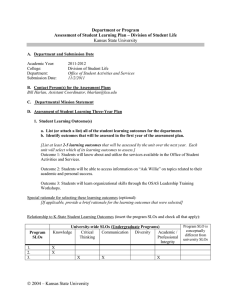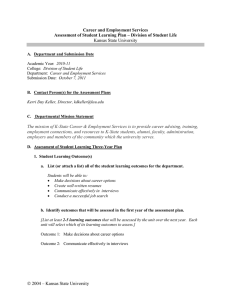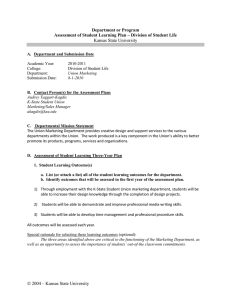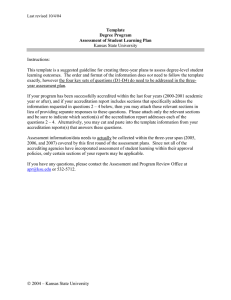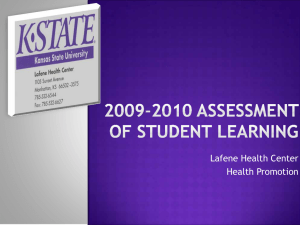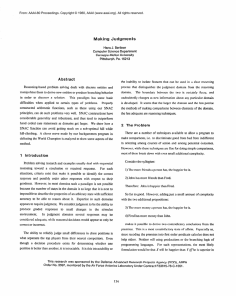Lafene Health Center – Health Promotion/Nutrition Counseling
advertisement
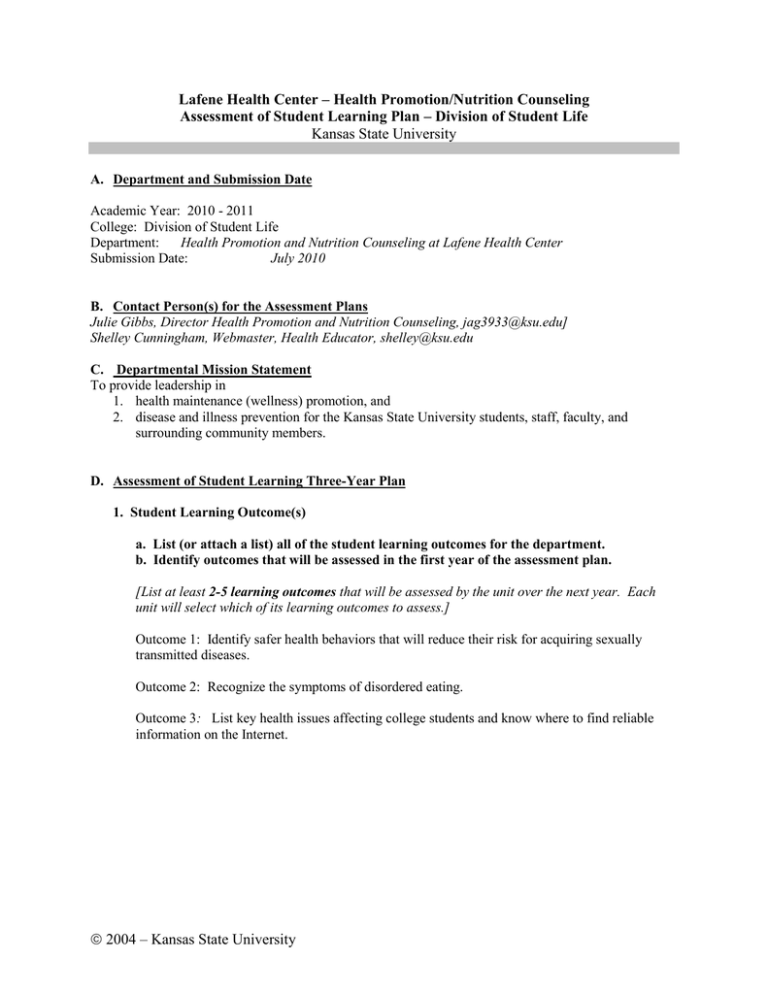
Lafene Health Center – Health Promotion/Nutrition Counseling Assessment of Student Learning Plan – Division of Student Life Kansas State University A. Department and Submission Date Academic Year: 2010 - 2011 College: Division of Student Life Department: Health Promotion and Nutrition Counseling at Lafene Health Center Submission Date: July 2010 B. Contact Person(s) for the Assessment Plans Julie Gibbs, Director Health Promotion and Nutrition Counseling, jag3933@ksu.edu] Shelley Cunningham, Webmaster, Health Educator, shelley@ksu.edu C. Departmental Mission Statement To provide leadership in 1. health maintenance (wellness) promotion, and 2. disease and illness prevention for the Kansas State University students, staff, faculty, and surrounding community members. D. Assessment of Student Learning Three-Year Plan 1. Student Learning Outcome(s) a. List (or attach a list) all of the student learning outcomes for the department. b. Identify outcomes that will be assessed in the first year of the assessment plan. [List at least 2-5 learning outcomes that will be assessed by the unit over the next year. Each unit will select which of its learning outcomes to assess.] Outcome 1: Identify safer health behaviors that will reduce their risk for acquiring sexually transmitted diseases. Outcome 2: Recognize the symptoms of disordered eating. Outcome 3: List key health issues affecting college students and know where to find reliable information on the Internet. 2004 – Kansas State University Special rationale for selecting these learning outcomes (optional): [If applicable, provide a brief rationale for the learning outcomes that were selected] Relationship to K-State Student Learning Outcomes (insert the program SLOs and check all that apply): Program SLOs 1. 2. 3. 4. 5. University-wide SLOs (Undergraduate Programs) Knowledge Critical Communication Diversity Academic / Thinking Professional Integrity X X X X X X X X Program SLO is conceptually different from university SLOs 2. How will the learning outcomes be assessed? What groups will be included in the assessment? [Briefly describe the assessment tools, measures, or forms of evidence that will be utilized to demonstrate students’ accomplishment of the learning outcomes selected in the one-year plan. Also indicate whether each measure is direct or indirect. If you are unsure, then write “Unsure of measurement type”. There is an expectation that at least one of the assessment methods/measures will be direct measures of student learning (see Measures, Rubrics, & Tools for Assessing Student Learning Outcomes on the APR website for examples of direct and indirect measures).] 1) Administer and evaluate post presentation evaluation at all SHAPE presentations. (indirect) 2) Administer and evaluate post presentation evaluation at all SNAC presentations. (indirect) 3) EDCEP 103 course completion – exam and group discussion components of course work. (direct) 3. When will these outcomes be assessed? When and in what format will the results of the assessment be discussed? 1) SHAPE Program Evaluation (administered at each presentation ~ 40 /year) a) Results reviewed weekly and discussed at SHAPE meetings. 2) SNAC Program Evaluation (administered at each presentaiton~15/year) a) Results reviewed weekly and discussed at SNAC meetings. 3) Course conducted 5 times per year, a) Review of exam results. b) Review of graded group discussions for content and critical thinking. c) Review of TEVAL for comments and suggestions. d) EDCEP 103 offered January, March, June, August and October. 2004 – Kansas State University 4. What is the unit’s process for using assessment results to improve student learning? 1) 2) 3) 4) Assessment results will be used to: Update course information for appropriateness in meeting student needs. Adapt methods of content delivery to facilitate student learning. Assess instructor and peer presenter skills to determine need for professional development Adjust programs accordingly Revised – Division of Student Life 2011 2004 – Kansas State University
